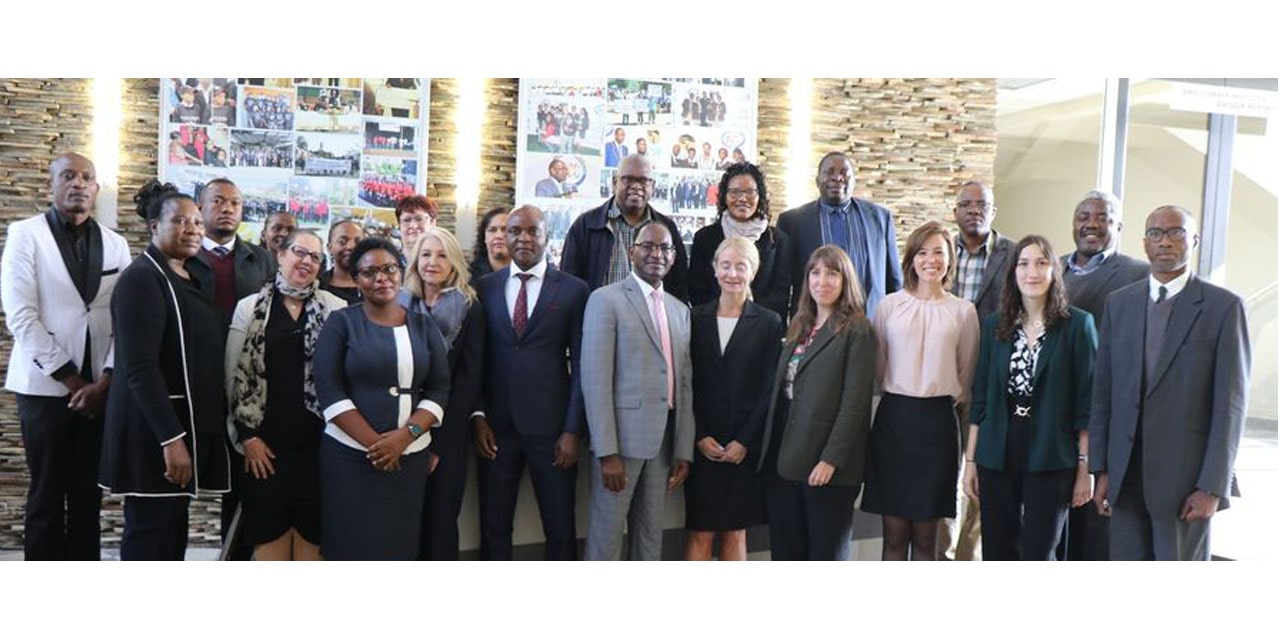Tujoromajo Kasuto
A country review of implementation by Namibia of the United Nations Convention Against Corruption (UNCAC) is being conducted by experts from France on Uganda.
The review will cover five main areas that relate to preventive measures, criminalisation and law enforcement, international cooperation, asset recovery, and technical assistance and information exchange against corruption. The review is done by Tanja Santucci, and Louise Portas on behalf of the UNCAC secretariat.
According to Paulus Noa, the Director General of the Anti-Corruption Commission the draft country review report sets pertinent questions drawn from articles of the two chapters under review and he urged the team to do the best they can without fear or favour.
Furthermore, Noa said the findings and recommendations will help Namibia to improve and maximise on the implementation of the Convention.
“While some progress has been made in the implementation of the Convention, there are areas
for improvement,’’ he said.
‘’As with all countries, the review process is intended mainly to assist the States under review to more fully implement the Convention. As such the observations may shed light on successes and good practices in implementation and also on areas where perhaps more work may be needed. In many cases the suggestions for improvement are in areas already identified by the Government itself and may encourage or support work and reforms that are already underway,’’ said Santucci. She said they hope that the review will serve as a useful opportunity to assess progress and take stock of anti-corruption efforts of which there have been many in Namibia since the first review cycle and identify further areas of priority.
The report covers areas on preventative anti-corruption policies and practices, preventative and anti-corruption body, public sector, code of conduct for public officials, financial disclosures and reporting, public procurement policies, measures to prevent money-laundering, prevention and detection of transfers of proceeds of crime.
Furthermore, it looks into financial intelligence units, special cooperation, measures for direct recovery of property, mechanisms for recovery of property through international cooperation in confiscation and international cooperation for purposes of confiscation.
The ACC director says that ‘’the findings and recommendations will be a learning experience for
Namibia, because we are keen to learn from good practices of other authorities in our bid to improve on our domestication of the Convention. For Namibia, it is not only about domestication, but most importantly about implementation. The review thus presents an opportunity for improvement.’’
Since Namibia signed the UNCAC in 2003 and ratified it in 2004, Namibia had participated as one of the reviewers during the first review cycle on Chapter III, Criminalization and Law Enforcement and Chapter IV, International Cooperation, of UNCAC.
Noa said when the second review cycle commenced, Namibia was among the first States Parties selected to conduct the second review.
‘’Namibia together with Australia reviewed Liechtenstein. The recommendations which came out of the Namibia Review Report remarkably informed the governance reforms that have been adopted since then,’’ he said.
He notes that a robust Public Procurement Act providing for preventative measures was enacted and fully operational. The law complements other existing laws such as the Anti-Corruption Act, Prevention of Organized Crime Act, Financial Intelligence Act to mention but some. Other new
laws on the block, though not yet in operation are Whistleblower Protection Act, Witness Protection Act and Access to Information law.
Further, actions informed by UNCAC articles have now been integrated in our national blueprints, particularly the National Development Plans and the implementation plan called Harambee Prosperity Plan II. In accordance with Article 5 of UNCAC, Namibia. developed the first National Anti-Corruption Strategy and Action Plan (2016-2019) which was implemented by stakeholders with much enthusiasm.




